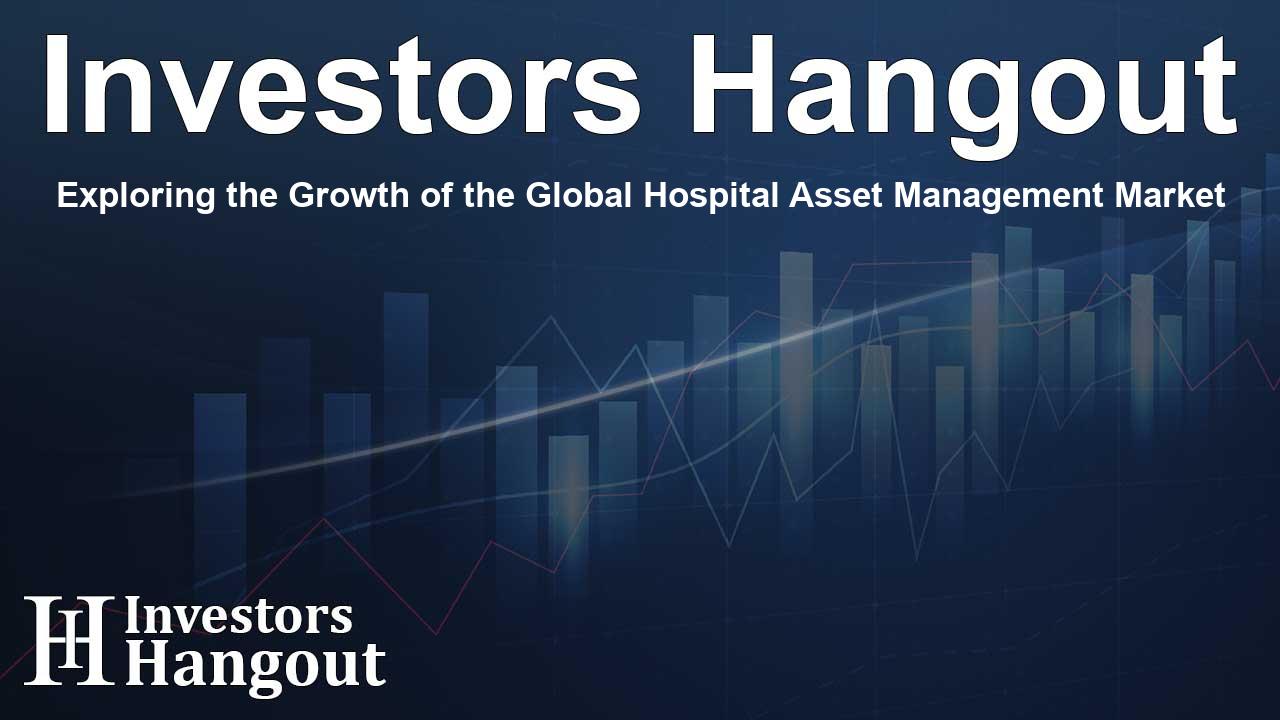Exploring the Growth of the Global Hospital Asset Management Market

Understanding the Hospital Asset Management Market Trends
The analysis of the Hospital Asset Management Market indicates a transformative period fueled by advancements in digital technologies, stringent regulations, and an unwavering commitment to patient safety. As hospitals increasingly adopt innovative practices, the need for effective asset management is becoming paramount to streamline operations and enhance patient care.
Market Growth Forecasts and Insights
Experts project that the Hospital Asset Management Market will witness significant growth, reaching approximately USD 414.18 billion by the end of its forecast period. This substantial growth is propelled by an impressive compound annual growth rate (CAGR) of 30.60% from 2026 to 2032. Understanding these metrics is crucial for stakeholders looking to make informed decisions in this booming sector.
Investment Drivers
Healthcare institutions are increasingly investing in technologies such as RFID and IoT, aiming for efficient asset tracking and management. This shift towards technology-driven solutions not only streamlines operations but also minimizes the risk of equipment loss and theft, a common challenge in busy hospital settings.
Technological Advancements
The implementation of real-time tracking systems is reshaping how hospitals manage their assets. With technologies like real-time location systems (RTLS), facilities can monitor the availability and location of critical medical equipment, which significantly reduces downtime and enhances overall patient satisfaction.
Challenges Facing the Market
Despite the promising growth trajectory, several challenges inhibit full-scale adoption. Initial costs for implementing comprehensive asset management systems can be high, deterring organizations, especially within emerging markets, from making the leap. Furthermore, as hospitals transition to advanced digital systems, concerns around data security and privacy remain prominent.
Compliance with Regulations
Compliance with regulatory frameworks remains essential in the hospital asset management landscape. Hospitals must navigate complex requirements like HIPAA and GDPR, which dictate how patient information is managed. Asset management systems that incorporate compliance monitoring features can help healthcare providers mitigate risks and avoid potential penalties.
Skills Gap in the Workforce
The adoption of sophisticated asset management technologies often exposes a skills gap within the healthcare workforce. Hospitals may struggle to find personnel equipped to handle new digital workflows, leading to operational inefficiencies. Providing training and support for employees is vital for fostering a culture of innovation within healthcare settings.
Geographical Trends and Market Leaders
Currently, North America dominates the Hospital Asset Management Market, characterized by its well-established healthcare infrastructure and early adoption of innovative technologies. Leading players in this space include esteemed companies recognized for their contributions to asset management solutions.
Market Segmentation Overview
The market can be categorized by various parameters such as product type, application, end-user, and geographic region. Some notable segments include:
- By Product: RFID devices and real-time location systems.
- By Application: Management systems for both hospitals and pharmaceuticals.
- By End-User: Hospitals, clinics, and pharmaceutical organizations.
Conclusion: The Future of Asset Management in Healthcare
As hospitals continue to prioritize efficiency in operations and patient care, the demand for effective hospital asset management solutions will grow. It is essential for healthcare organizations to adapt to these technological advancements while addressing the challenges posed by cost and data security. A strategic focus on the integration of smart technologies will ultimately lead to improved patient outcomes and enhanced operational effectiveness.
Frequently Asked Questions
What is the projected revenue of the Hospital Asset Management Market?
The Hospital Asset Management Market is projected to generate approximately USD 414.18 billion by 2032.
What technologies are driving the growth of the market?
Technologies such as RFID, IoT, and RTLS are central to enhancing asset visibility and management within hospitals.
Which regions are leading in the Hospital Asset Management Market?
North America is currently the leading region in the Hospital Asset Management Market due to its advanced infrastructure and technology adoption.
What are the key challenges faced by hospitals in asset management?
High implementation costs and concerns regarding data security and privacy present significant challenges to hospitals adopting asset management systems.
Why is compliance important in hospital asset management?
Compliance ensures that hospitals meet regulatory requirements, reducing the risk of penalties and improving patient safety through effective asset utilization.
About The Author
Contact Owen Jenkins privately here. Or send an email with ATTN: Owen Jenkins as the subject to contact@investorshangout.com.
About Investors Hangout
Investors Hangout is a leading online stock forum for financial discussion and learning, offering a wide range of free tools and resources. It draws in traders of all levels, who exchange market knowledge, investigate trading tactics, and keep an eye on industry developments in real time. Featuring financial articles, stock message boards, quotes, charts, company profiles, and live news updates. Through cooperative learning and a wealth of informational resources, it helps users from novices creating their first portfolios to experts honing their techniques. Join Investors Hangout today: https://investorshangout.com/
The content of this article is based on factual, publicly available information and does not represent legal, financial, or investment advice. Investors Hangout does not offer financial advice, and the author is not a licensed financial advisor. Consult a qualified advisor before making any financial or investment decisions based on this article. This article should not be considered advice to purchase, sell, or hold any securities or other investments. If any of the material provided here is inaccurate, please contact us for corrections.
